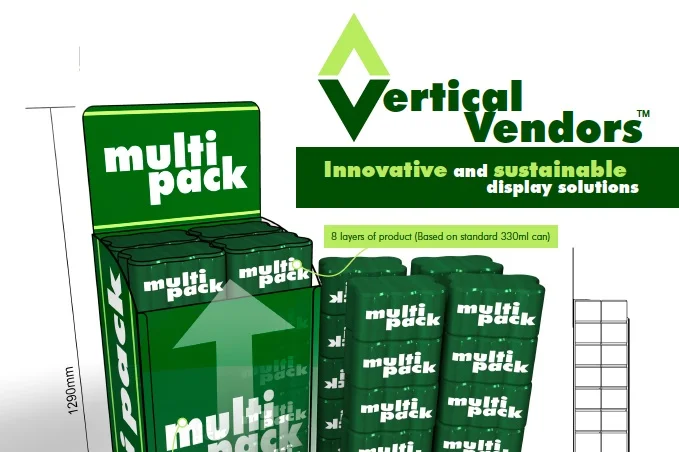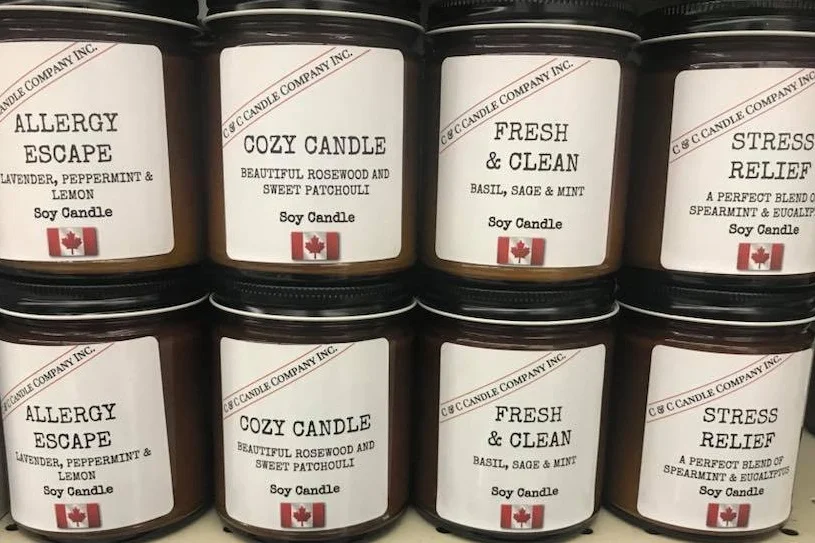How Blockchain and Crypto Is Impacting Retail in Canada
/image: sofi
By Kayla Matthews
Blockchain and cryptocurrency are two hot topics in Canada and elsewhere.
Blockchain technology consists of a digital ledger system that records various kinds of transactions between parties, and cryptocurrencies are digital, token-based currencies that run on the blockchain's ledger. Bitcoin is the most well-known cryptocurrency, but there are now thousands of others.
Many analysts think crypto and retail represent a likely pairing. Here are four examples of the impacts that cryptocurrency and blockchain have had on retail or will soon.
photo: Fjällräven
1. Engaging Younger Consumers
Retailers hear a lot about the buying power of younger generations and how important it is to engage those groups in ways that seem authentic and relevant. Fjällräven, a Swedish outdoor goods retailer, had success when it depended on cryptocurrency to get college students interested in the brand.
The company's logo features a fox, so it's not surprising that Fjällräven introduced a cryptocurrency called the Fox Coin and encouraged people to hunt for it by using their smartphones on a scavenger hunt. Part of the month-long campaign involved the opportunity to win a Kånken — one of the brand's popular backpacks — every day.
This effort capitalized on cryptocurrency, plus introduced or got more young people interested in the brand. Moreover, the contest made people go outside to look for the coins, and being outdoors is a central priority for Fjällräven. Other brands that wish to someday be thought of as Bitcoin retailers or those who support other cryptocurrencies should take note.
A 2019 survey from PwC polled Canadians near the holiday season and found that the Gen-Z and millennial generations felt most positive about the economy and their finances. Retailers could take advantage of that momentum and use cryptocurrency promotions to encourage people to spend while they're feeling optimistic.
image: evrything
2. Increasing Product Transparency
People are getting more concerned about the origins of the products they buy, particularly if the item is high-dollar, or perhaps associated with food or sustainability. Buyers no longer merely trust what brands tell them about the journey merchandise takes before it reaches them. They want to verify for themselves, and blockchain technology does that.
Matthew Williams, who once worked with Lady Gaga and Kanye West, launched the 1017 Alyx 9SM fashion brand in 2015. More recently, he made a compelling business case for blockchain by explaining how it could boost transparency. A person could scan a QR code on a tag attached to some of the products in the fashion line, then see a complete history of what stages the garment went through before arriving in the consumer's hands.
Williams says consumers who scan the QR code can even see the source of the raw materials. Such transparency makes sense for Canadians who want more clarity about the progress that products make in the supply chain. Having such visibility helps retailers stand out and lets people have confidence in brands.
image: scotiabank twitter
3. Disrupting Banking With Blockchain
The retail sector is not alone in its adoption of blockchain technology. The banking sector — which retail depends on heavily — is aggressively exploring ways to implement the blockchain to increase security. It's also looking at other benefits, such as those related to risk management and speed.
The blockchain is also ideal for Canadian retailers who do business in other nations. Blockchain technology does not carry the fees associated with cross-border remittance, thereby saving brands money.
In May 2019, several Canadian banking names, including Scotiabank and National Bank of Canada, deployed a blockchain solution for identity verification. Since it does the job speedily and securely, such an improvement could shorten the time it takes for Canadian retailers to open accounts, apply for loans or take care of other banking necessities.
photo: shopsquareone
4. Giving People More Payment Options
If people are curious about who accepts cryptocurrency in Canada, the list recently got substantially larger. Flexa, a company bridging the gap between crypto and retail, recently branched out into Canada. It will enable a network of more than 7,500 brands to potentially become Bitcoin retailers or those that accept other popular cryptocurrencies.
Birks Group, a luxury Canadian jewelry brand, announced people could pay with Bitcoin at some of its stores. The offering is through BitPay, a service frequently chosen by upscale brands since it handles large payments quickly.
If a merchant decides to accept cryptocurrency, the perk could appeal to people who are eager to experiment with the option. Shoppers who are already enthusiasts are also likely to buy in..
Crypto and Retail Are Well-Matched
These examples show that cryptocurrency and blockchain are in prime positions to heavily influence retail. Now is the time for retail professionals to monitor the trends and get ready to potentially benefit from them.
Kayla Matthews is a researcher, writer and blogger covering topics related to technology, smart gadgets, the future of work and personal productivity. She is the owner and editor of ProductivityTheory.com and ProductivityBytes.com. Previously, Kayla was a senior writer at MakeUseOf and contributing freelancer to Digital Trends. Kayla's work on smart homes and consumer tech has also been featured on Houzz, Dwell, Inman and Curbed. Additionally, her work has appeared on Quartz, PRNewswire, The Week, The Next Web, Lifehacker, Mashable, The Daily Dot, WIRED and others.















![Inside Inscape's Hip Financial District Retail Showroom [Photos]](https://images.squarespace-cdn.com/content/v1/529fc0c0e4b088b079c3fb6d/1566495657016-5PTHWMYMALSU9VBIKGNG/Screen%2BShot%2B2019-08-22%2Bat%2B1.28.30%2BPM.jpg)
![Retail-insider-NRIG-banner-300-x-300-V01-3[2].jpg](https://images.squarespace-cdn.com/content/v1/529fc0c0e4b088b079c3fb6d/1593476525034-QRWBY8JUPUYFUKJD2X9Z/Retail-insider-NRIG-banner-300-x-300-V01-3%5B2%5D.jpg)
![Retail-insider-NRIG-banner-300-x-300-V01-2[2].jpg](https://images.squarespace-cdn.com/content/v1/529fc0c0e4b088b079c3fb6d/1593476491497-W6OZKVGCJATXESC9EZ0O/Retail-insider-NRIG-banner-300-x-300-V01-2%5B2%5D.jpg)
![Retail-insider-NRIG-banner-300-x-300-V01-4[2].jpg](https://images.squarespace-cdn.com/content/v1/529fc0c0e4b088b079c3fb6d/1593476508900-TJG5SNQ294YNOCK6X8OW/Retail-insider-NRIG-banner-300-x-300-V01-4%5B2%5D.jpg)
With many physical stores forced to close or adopt new ways of operating, retailers must remain adaptable.